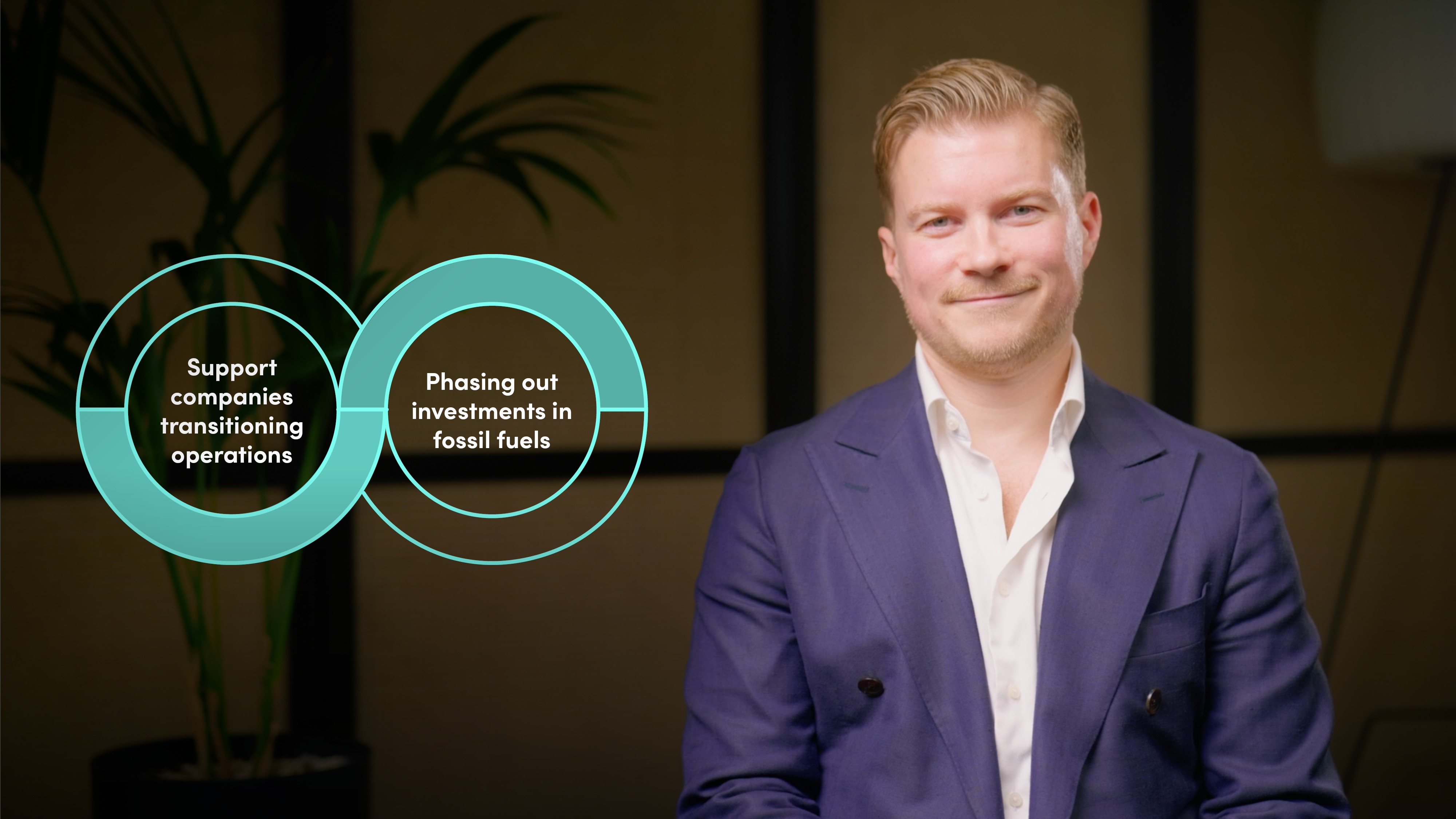
Danske Bank's Fossil Fuel Policy

Mads Steinmüller
Head of Climate and Nature
The majority of the world’s energy supply continues to be supplied by fossil fuels. Dive into how Danske Bank is addressing investments in fossil fuel companies with Mads Steinmüller, head of climate & nature within Danske Bank’s Responsible Investment team.
The majority of the world’s energy supply continues to be supplied by fossil fuels. Dive into how Danske Bank is addressing investments in fossil fuel companies with Mads Steinmüller, head of climate & nature within Danske Bank’s Responsible Investment team.
Subscribe to watch
Access this and all of the content on our platform by signing up for a 7-day free trial.

Danske Bank's Fossil Fuel Policy
3 mins 10 secs
Key learning objectives:
Understand Danske Bank’s fossil fuel policy
Identify how Danske Bank’s policies align with the Paris Agreement and contribute to a net zero future
Overview:
Currently, the majority of the world's energy supply, approximately 80%, is derived from fossil fuels. Danske Bank is fully committed to supporting the Paris Agreement and its aim to limit global warming to no more than 1.5°C and takes a firm stance on investments in fossil fuel companies. These policies ensure that companies adhere to a strict set of criteria before investments in them are considered on behalf of customers.
Subscribe to watch
Access this and all of the content on our platform by signing up for a 7-day free trial.
Subscribe to watch
Access this and all of the content on our platform by signing up for a 7-day free trial.

Mads Steinmüller
There are no available Videos from "Mads Steinmüller"





























